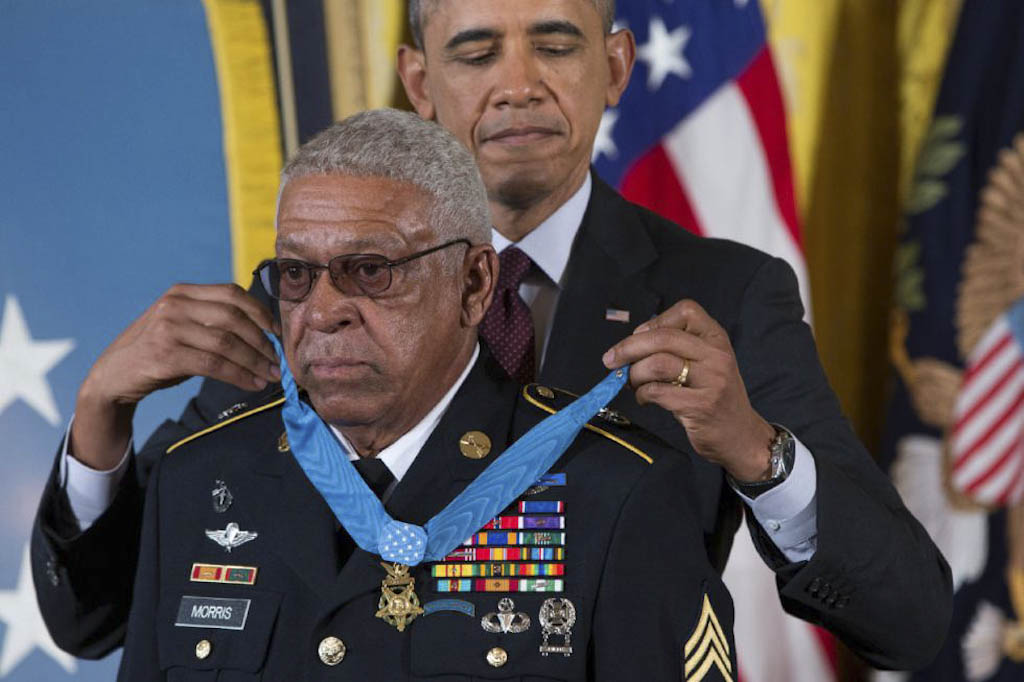EAST BRUNSWICK Helping to uncover a pattern of discrimination toward honoring minority veterans, resident Gene Wilk was featured in the upcoming film “Unforgotten 24.”
Wilk and his wife Michelle Wilson moved their two children to East Brunswick a few months ago after having lived in North Brunswick for 11 years, according to Wilk.
“While Michelle is native to New Jersey, I was born in Wisconsin, raised in California, and lived in Florida and Washington, D.C. before coming to New Jersey,” Wilk said.
Wilk worked on Capitol Hill for almost nine years, first for (D-Florida) Rep. Robert Wexler, (D-Florida) then for Rep. Adam B. Schiff, (D-California), according to Wilk.
During his time with Wexler, Wilk was asked by him to help Mitch Libman, an older Florida resident who was a childhood friend of Leonard Kravitz who had died in service in the Korean War. Mitch had been trying for years to have Kravitz awarded the Medal of Honor which Mitch felt he deserved but was overlooked, according to Wilk.
“Through my investigation, it was found that a number of Jewish American veterans may have been passed over for the Medal of Honor due to discrimination. I then did the staff work on legislation requiring the Pentagon to review the wartime records of certain Jewish service members. The legislation was expanded to include Hispanic veterans and a subsequent bill opened up the review process to certain other veterans,” Wilk said.
His work included getting co-sponsors for the main bill, getting a Senate companion bill introduced and working the measure through the legislative process. After the larger scope legislation was passed as part of a defense authorization act in late 2001, Wilk helped gather information on certain Jewish veterans that the Pentagon could choose to use in its review, according to Wilk.
“The result of the legislation is that Tibor Rubin, a Jewish veteran and freed Prisoner of War of the Korean War, as well as Holocaust survivor was awarded the Medal of Honor in 2005 in a White House ceremony that Michelle and I attended, and then 24 veterans, many of them minorities and one of them Kravitz, were awarded the Medal of Honor in a special White House ceremony in 2014,” Wilk said.
Wilk said that he was asked to be interviewed for the movie to provide the background of how and why the legislation was done.
“The underlying truth of American history is that minorities have played a notable and courageous part in protecting the country and its values all while facing a harder life, often as the result of social barriers put in place by the majority,” Wilk said.
Wilk continued, “This film counters the efforts of those who seek to deny full liberty to all Americans by relaying the historic narrative that minority communities have always believed in the ideals of America and have sacrificed for them even though the promise of American democracy and freedom have often remained elusive. All Americans can gain a better appreciation of how the lives we enjoy now are the result of the labor and sacrifice from those of all walks of life.”
According to Doublestein, the film’s producer Vincent Vittorio was approached by a friend in South Florida who was acquaintances with Joe Rodriguez, the gentleman who received the Medal of Honor for his fallen uncle Miguel Vera. When Vincent was introduced to Joe and told the whole story about how the medal upgrade process unfolded over 50 years he knew immediately it was a story that had to be told.
“Our goal is to create a film that examines how race, ethnicity, and even citizenship may play a role in how society sees a person, but when it comes to sacrifice there is no race. We hope to show the errors of the past, but more importantly highlight how this delayed recognition is a sign of a brighter, less divided society that focuses on selflessly fighting for their neighbor,” Doublestein said.
Production for the film began in February of 2016 and is currently in post production, according to Doublestein.
The film is going to be available on DVD, digital download, and limited screenings around the country in 2018, according to Doublestein.
“Coming into this film we knew that this story has baggage associated with it that we simply cannot ignore. The media narrative was a simple story of discrimination that had been overturned. At first that seemed to be the case, but as we conducted our interviews it became clear that the narrative was far more nuanced than that,” Doublestein said.
“In some instances discrimination did play a role and in others there were compounding factors that had nothing to do with race. Either way it was clear that these men deserved the Medal of Honor and yet their recognition was delayed for as much as 70 years.”
For more information about the film “Unforgotten 24” visit www.unforgotten24.com or www.unforgotten24.com/mailinglist.
Contact Vashti Harris at [email protected].

